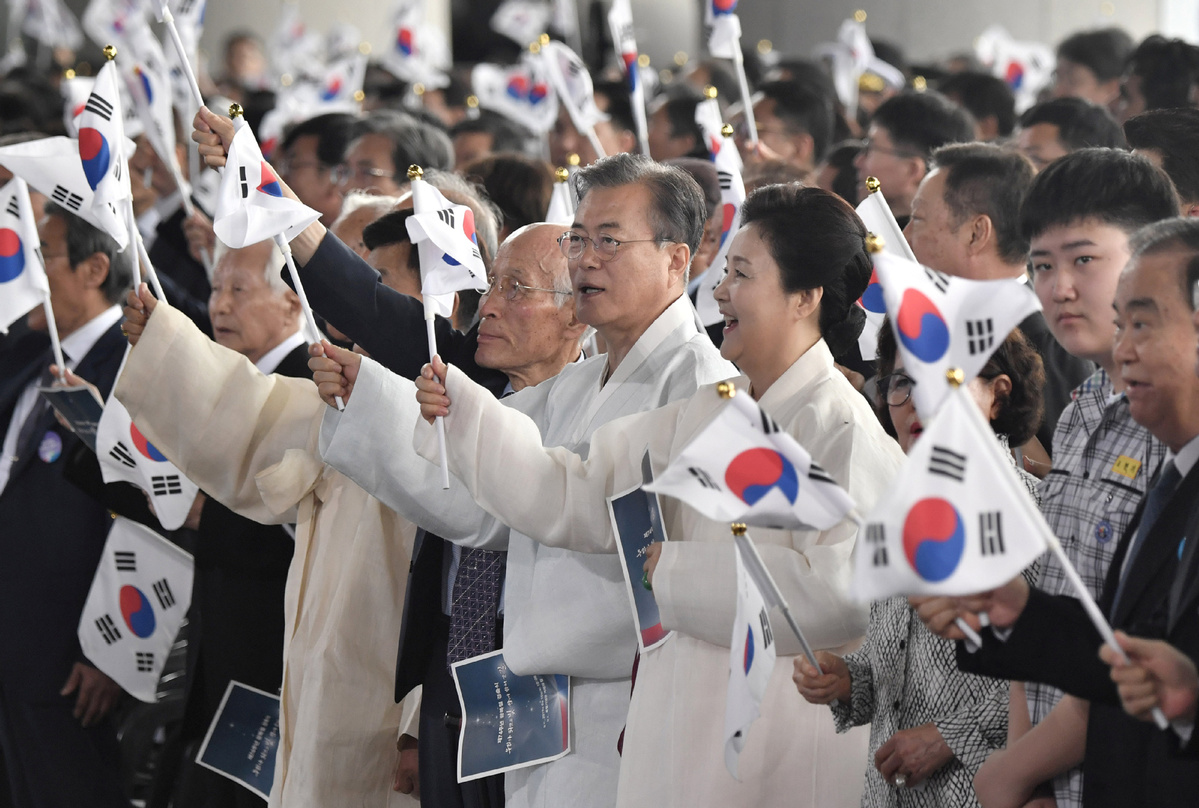Tokyo-Seoul trade spat adds uncertainty to global economy
By Liang Yunxiang | China Daily | Updated: 2019-08-17 08:34

Japan and the Republic of Korea, two major economies in Northeast Asia, are locked in a trade conflict. Just one month after the G20 Summit in Osaka, which laid emphasis on global economic development and free trade, the Japanese government announced the removal of the ROK from its "white list" that accords trading partners preferential exports treatment.
In a tit-for-tat, Seoul said on Monday it has decided to remove Tokyo from its own "white list", further straining the already faltering Japan-ROK relations.
In some sense, postwar Japan has always held dear free trade, which is critical to a country built upon trade. Japan and the ROK, both key allies of the United States in East Asia, have similar or the same security interests. Thus despite the frequent discords over history between the two neighbors, they have largely maintained close economic ties and cooperation.
Against this background, it seems a bit baffling that Japan made such a move on the heels of the G20 Summit which promoted free trade. Yet the conflict between the two sides didn't crop up in a day; it is the result of accumulated long-term and irreconcilable contradictions. Even though Japan has ostensibly tightened its export management vis-à-vis the ROK in the name of national security, it is history and the Korean Peninsula nuclear issue that have prompted the high-tech power to try to choke the ROK.
Nearly all conflicts between Tokyo and Seoul are related to wartime history, and there has never been a time when they appeared to be in a position to comprehensively resolve them. In particular, the issue of "comfort women"-women and girls who were forced into sexual slavery by the Imperial Japanese Army before and during World War II-has repeatedly pitched the two countries against each other.
The Shinzo Abe administration holds that compensation has already been paid to the "comfort women", which, people in the ROK say, is not correct.
Besides, a court in Seoul recently ordered some Japanese enterprises to pay damages and apologize for using forced labor during the Japanese occupation of Korea.
Speaking of the peninsula nuclear issue, Tokyo and Seoul share common interests and collaborate on the security front under US mediation. They also have an intelligence sharing pact.
But Japan was almost marginalized in the process that eased tensions on the Korean Peninsula, and helped the leaders of the US and the Democratic People's Republic of Korea to hold three meetings. Surprisingly, the Japan-ROK conflict spread to the security field, too, as Japan believes the ROK has overlooked Japan's role in the peace process. For instance, Seoul is mulling scrapping the intelligence sharing pact. Moreover, Washington's efforts to invite Japan Self-Defense Forces to join the UN troops deployed in the ROK have met with strong opposition from Seoul.
These issues have infuriated both the Japanese government and public, prompting the Abe administration to punish the ROK, especially because many ROK companies depend heavily on Japanese high-tech products. Japan's message is that the ROK should not allow strong anti-Japanese sentiments to continue and ignore Japan's importance to the peninsula nuclear issue while benefiting from the Japanese economy.
Yet Tokyo's strategy may not bring Seoul to its knees. Instead, it could intensify anti-Japanese sentiments in the ROK. The deteriorating bilateral relations could impair both economies, although Japan, being stronger and occupying a higher position in the industrial chain, may suffer less than the ROK.
And the reduced economic and security cooperation between Japan and the ROK could have a negative impact on the overall economic development of East Asia, even the whole world. Which will bode ill for the development of trade in the region and add more uncertainty to the already dim global economic prospects in the face of China-US trade spat.
However, a military confrontation between Tokyo and Seoul is unlikely, because their security cooperation has weakened due to mutual aversion, not a clash of real interests. And the fact that any security crisis on the Korean Peninsula or in East Asia will prompt both Tokyo and Seoul to act to safeguard their common interests means the two sides are highly unlikely to engage in a military confrontation.
The author is a professor at the School of International Studies, Peking University. The views don't necessarily represent those of China Daily.
























